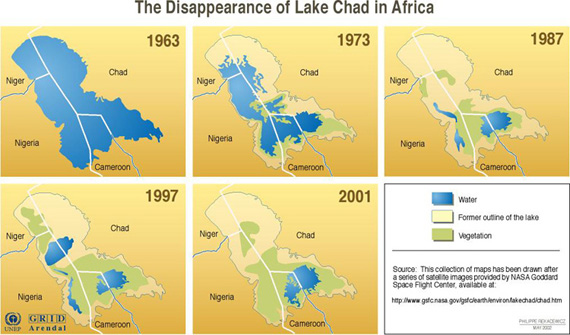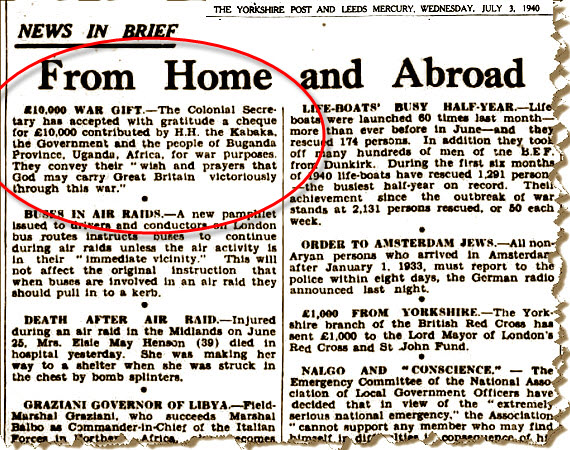
[HOME ] [ABOUT] [PHOTOS] [VIDEO] [BLOG] [HOUSTON] [TEXAS] [U.S. NEWS] [WORLD NEWS] [SPORTS] [POP CULTURE] [CONTACT]
Part V: African reality-- The rise of the police state after independence

Winston Churchill was one of the prominent British officials who traveled to East Africa to solidify Britain's grip on the region. Many attribute the term "Pearl of Africa" to Churchill, yet it was actually Henry Morton Stanley who used the phrase to describe the Kingdom of Buganda which in Swahili is Uganda. Busoga is Usoga, Bunyoro is Unyoro, Bukedi is Ukedi, Ankole is Usagara, Buvuma is Uvuma and so forth. After the colonialists left the region, subsequent rulers went through great lengths to destroy what once was referred to as the Pearl, out of malice for its beauty and rich, sacred heritage.
by Joseph Earnest May 12, 2014
Newscast Media HOUSTON, Texas—Before the scramble for Africa took place, Britain struck a deal with Germany in the Anglo-German Heligoland Treaty of 1890, in which the British agreed to allow Germany to claim Tanganyika, and Britain would also give up Heligoland Island in the North Sea to the Germans. In return, Britain would claim the rest of East Africa as its own.
In West Africa, Nigeria too was declared a British protectorate that consisted of the Northern Nigerian Protectorate and Southern Nigerian protectorate. Both were combined into one and named the Colony and Protectorate of Nigeria. Once again, we see how British interference is the current cause of problems in Nigeria to this very day, since the north is predominantly Muslim, while the south Christian. The Boko Haram Islamist group that recently abducted 300 schoolgirls hails from the north and seeks an Islamic state. Had the British left the north and south separate, we wouldn't see the current tensions between the two Nigerias.
In essence, what the British accomplished was the creation of militant police states in many countries that achieved independence 50 years ago. African leaders have not yet mentally evolved with the rest of the world whereby they are willing to relinquish power to the next generation. In other words, most operate on a low vibrational frequency and are unwilling to usher in the new generation of leaders.
While the colonialists created forest reserves, national parks, game reserves and conserved nature, if one looks at the way the current crop of leaders is mismanaging Africa, it reinforces the notion that Africa's greatest curse is its leaders.
Consider Lake Chad that is shared by Nigeria, Niger, Chad and Cameroon, in less than 20 years, a lake that had existed for over 6,000 years is now empty and is like a giant football field. Look at the satellite image by NASA below:

Before these countries received independence, Lake Chad dating back to 4,000 B.C. was full. Less than 20 years after the colonialists left, the overgrazing and deforestation has removed the moisture cover making the lake vulnerable to evaporation from the sun rays. Here we can witness mismanagement of the natural resources by police states.
Another example is the Congo forest that has been encroached upon in the last 20 years by rebels in eastern Congo. As the encroachment continues, so will the desertification of the surrounding regions. Trees, animals, birds and reptiles will be the victims in the next two decades, as we see happening in Kenya where two thirds of the wildlife has vanished.
In a Yale University study that was published by Yale Environment 360, it was revealed that there is a growing specter of an Africa without wildlife within the next few decades. The magazine recommends that African leaders take a radical view on conserving and protecting their environment.
In Tanzania the logging industry has led to unusually high temperature and less rainfall each year due to deforestation. Other parts of Africa may not have a reduction in rainfall, but it comes in a sudden pour, creating soil erosion, triggering mudslides and on many occasions flooding occurs.
As for what was referred to as the Pearl of Africa, Friends of Earth, a UK based organization that brings together environmentalists, accused the World Bank and the Ugandan government, in a report, of assisting big investors to grab land for commercial farming, causing poverty, environmental degradation and human rights violations. The report titled: Land, life and justice: How land grabbing in Uganda is affecting the environment, livelihoods and food sovereignty of communities, claimed the World Bank and the International Fund for Agricultural Development injected a combined $29.9 million in the palm oil growing and processing project, which has threatened the livelihoods of over 20,000 people of Bugala Island on Lake Victoria. Several foreign banks are also accused of fueling land grabs.
The New York Times reported that HSBC and Hong Kong's Shanghai Banking Corporation were among the investors that led to loss of land.
Furthermore, all the land grabs that environmentalists have chronicled occur in violation of Ugandan law:
According to the 1995 Constitution, land cannot be forcibly acquired except for reasons of security or public health. Affected people have reportedly not been compensated, as required by the Land Acquisition Act of 1965. In addition, the Constitution, the Land Acquisition Act, and the Draft National Land Policy (March 2011) prohibit compulsory acquisition for private investment (MLHUD 2011), and the National Environmental Act of 1988 mandates that there be a 200 meter buffer zone between the project and Lake Victoria, but no such buffer zone has been established, according to the research study by Friends of Earth International (FOEI).
The people who are engaged in depriving the natives of their ancestral land through illegal sales are in direct violation of God's command regarding land. God explicitly forbids the sale of ancestral (family) land, and commands that it should stay within families. Therefore people from different tribes and foreigners who bought land from different regions other than their ancestral birth places, through depriving natives of their ancestral land, did so in violation of God's word, and will be judged severely by God Himself. The words below came directly from God's mouth:

The above passage in Leviticus 25:23-28 shows that God does not play games when it comes to family or ancestral land. The British, French, Germans, Portuguese and so forth went into Africa, and gave themselves the choicest pieces of land while the natives who had held the land for hundreds of years were robbed and deprived.
Most African countries are now celebrating their year of jubilee (50 years of independence), but with this also comes the great responsibility of returning the land and property that was stolen from families by the governments at the time. In other words, God is saying, now is the time to restore property back to its original owners, so that families can return and utilize it for whatever they wish. Also, if we examine the above passage, no lease can exceed 50 years (jubilee), and after those 50 years elapse, the property or land has to be returned to the original owners with no questioned asked. This is not a request—it is according to God's very words.
It also applies to other parts of the world including America. If a family has property in its possession, the federal government, state or city cannot forcefully remove that family from the land without being in violation of God's word and bringing a curse upon itself or agents. Even if the owner consents to the sale with just compensation, God says the land must revert back to the original owner and his family after 50 years, because the sale of family or ancestral land can never be permanent.
There are many people, including public officials, who have already paved their way to eternal damnation for the injustices they have committed against landowners.
In regard to the current mismanagement of Africa's environment, the Universe will never allow an injustice upon nature to go unpunished. Sadly, the reckless deforestation and pollution of nature in one region of the country, has triggered the wrath of mother nature to exact her vengeance on another part of the country. The cherished snow-capped Mount Rwenzori in the jealously-protected western region of Uganda, is now feeling the anger of mother nature.
While deforestation and overgrazing has been permitted in the central region, this has resulted in the creation of warm air in the atmosphere. This air travels in currents throughout the region and now the heat is melting the ice on the Rwenzori mountain at disturbing rates. Within two decades, Africa's equatorial peaks will be bare rock.
John Medenge a tour guide who helps climbers on the Rwenzori said, "We are the last few who will climb on the ice, it is going so fast," according to NDTV.
"The melting of this unique African glacier is a major threat to local communities, with the obvious loss of sustainable water supplies," said Luc Hardy of Pax Arctica, a French-American explorer and a vice-president of the environmental Green Cross group.
According to Climate Change Unit, the Rwenzori that once had 217 hectares (536 acres) of ice coverage on Mount Speke, the highest peak of the range, now has less than 18 hectares (44 acres) left .
Africans need to think collectively and cease sabotaging each other based on tribal and political differences, because in the end, it affects the entire community negatively. Once all the snow is gone, within the next decade or two, it will never be replaceable, and the famous "Mountain of the Moon" will have turned from a beautiful snow-capped mountain, to an ugly grey rock that would cause one to want to cover his or her eyes upon seeing it.
After centuries of wonder at the spectacle of snow on the equator, the vanishing ice is bringing with it multiple challenges. Mountain guides say the local king sends elders to sacrifice chickens and goats at the foot of the mountains to appease the gods that live in the peaks, to stem the vanishing ice.
This has all happened in the last 50 years under the watch of today's leaders.
The people who are most suitable to run Africa are scientists, or those who have a scientific background, since they tend to take an approach that employs critical thinking on environmental issues. Unlike the West that is viewed as one gigantic village of concrete surrounded by glass boxes (skyscrapers) and traffic, Africa should be viewed as one gigantic botanical garden, surrounded by different ecosystems.
Solution:
- With the failure of the old order of leaders to manage Africa responsibly and their reluctance to invest in native Africans, and grow their own leaders, a system that distributes powers to the local level would suffice to curb the excesses that are destroying the African experience.
- The unitary system left in place by the colonialists where one individual has all the power, has proven to be a bad experiment for the past 50 years. Greater autonomy to different regions will empower them to manage and develop themselves more effectively and efficiently than the central governments that are drowning in debt and tainted with corruption.
- Kenya is solving this problem by moving toward federalization since there is no other way to sustainable development other than through federalization. In smaller regions within the same country that are not prepared for federalism, non-corporate federalism would allow minorities for example, to establish their own institutions and practices, under the umbrella of the central government.
- The fear that federalism would disintegrate a nation is fallacious and founded on the politicians' corruption of the term, and the fear of the ruling class to empower the people at the bottom. They are afraid that if people at the bottom are empowered, it will be hard to control them, which in turn will make the people in power more and more irrelevant to the common man.
- Regional tiers and decentralization are not the same as federalism. There is the appearance of power-sharing in regional tiers but at closer observation, representatives of these regions are representatives or agents of the government rather than the people. In true federal systems the state or region would hold the federal government accountable since all the representatives would be working for the state and not the federal government. This would prevent the federal government from interfering with local matters that can be handled on the state level and would keep the government in check, preventing it from succumbing to the temptation of corruption and abuse of power.
- Also, in a true federal government as opposed to a regional tier, the state collects taxes. For example, the State of Texas charges an 8.25% sales tax. It also generates revenue from permits, state licenses, fees, penalties and fines. These monies are used to keep various organs of the state running, without having to depend on the federal government for sustenance.
- Every region's natural resources can be shared with the government on a 40-40-20 basis, meaning 40 percent of the revenue goes to the particular region, 40 percent goes to the central government, and the 20 percent is kept in a "rainy day fund" to meet future emergencies like natural disasters. A treasurer would be appointed to oversee and disburse the rainy day funds to the appropriate regions that contributed them.
- Tribes that have abandoned their hometowns and congregated in one particular region of the country will see federalization as an incentive to return and develop their regions of origin, because the responsibility will be upon them to handle their own regional affairs, rather than live as settlers elsewhere while their townships remain undeveloped. The migration back to their regions of origin will also play an active role in decongesting cities in regions where most tribes choose to congregate away from their ancestral villages.
- Regions or states would also have their state constitutions that provide citizens of those states certain protections and privileges. These would also be reflected in a provision within the federal constitution.
In smaller nations like Uganda, the regions that already have local governments in place could be granted autonomy through federalization, and the rest of the regions, if able to form organized local governments, would follow later on.
The model was a previous success in the well-managed Province of Buganda, which even had a surplus in its local budget that helped the British fund World War II.
The article below that was printed in the Yorkshire Post and Leeds Mercury on July 3, 1940, shows a contribution of 10,000 British Pounds to the war effort. It reads:
"The Colonial Secretary has accepted with gratitude a cheque for £10,000 contributed by H.H. the Kabaka, the Government and the people of Buganda, Buganda Province, Uganda, Africa, for war purposes. They convey their "wish and prayers that God may carry Great Britain victoriously through this war.""

As one can see in the above clipping from the 1940s, Buganda Province in its autonomous form, was prosperous enough to fund a World War, and the idea of it being dependent on foreign donations for sustenance did not exist. Today, the old order has put the entire nation in immense debt, not even the great grandchildren could pay off the debts with the interest rates imposed by the World Bank and IMF.
If pride and egos can be put aside, this ship can be turned around by applying the simple principles stated above on a region-by-region basis.
One way or the other, someone incorruptible is going to be raised up who will restore Africa back to her original glory, and that person will be known and exalted throughout posterity, as the one who gave Africa back to her people.
*Click here to download the entire five-part series for free as a PDF file. (.pdf)
Related stories:
Part I: African reality is a product of pseudo democracy
Part II: African reality is a product of pseudo democracy
Part III: African reality is a product of pseudo democracy
Part IV: African reality is a product of pseudo democracy
Part V: African reality is a product of pseudo democracy
|
|
Join the Newscast Media social networks
for current events and multimedia content.
Copyright© Newscast Media. All Rights Reserved. Terms and Privacy Policy
